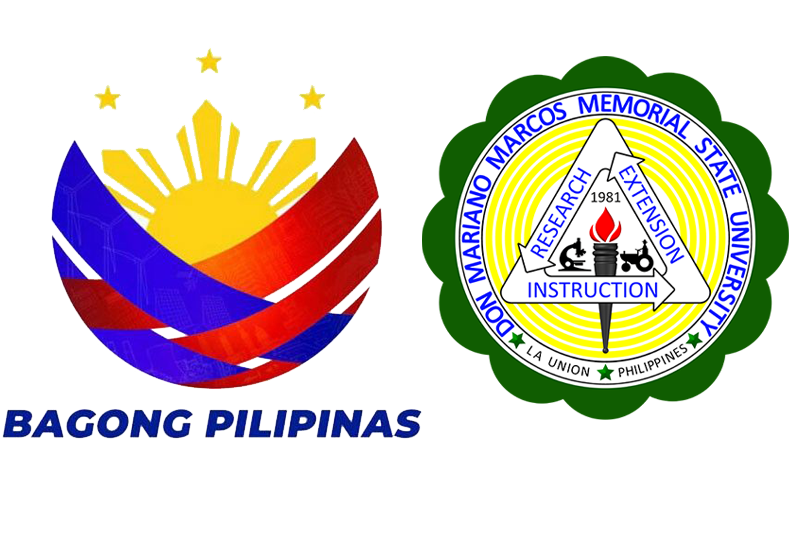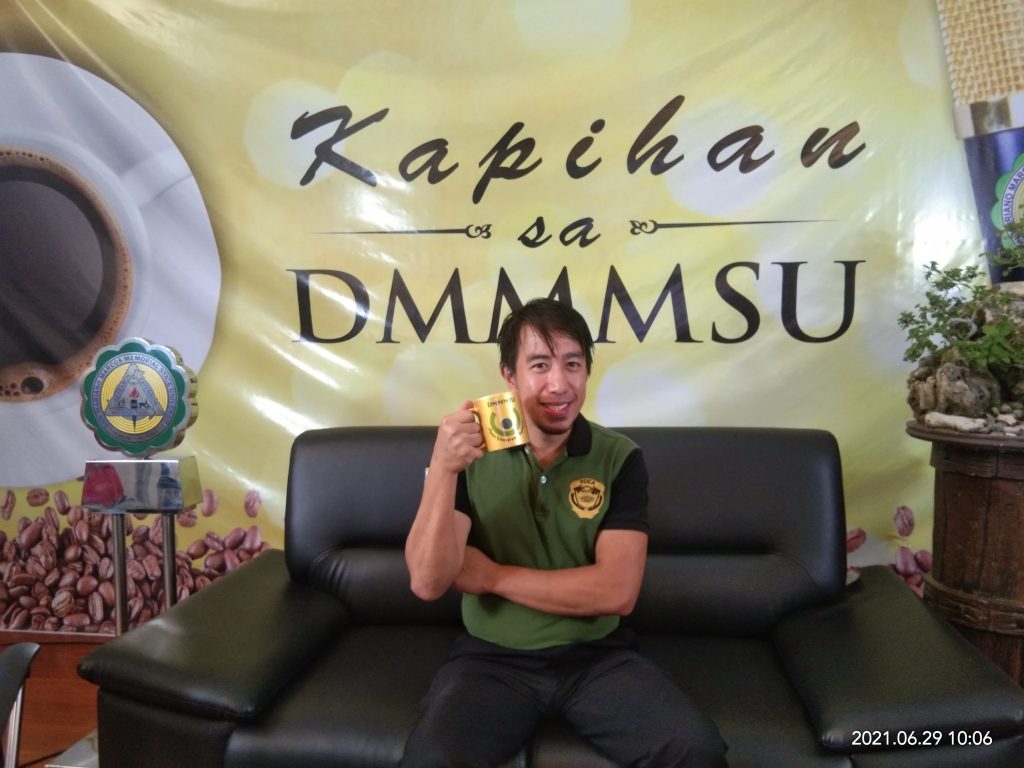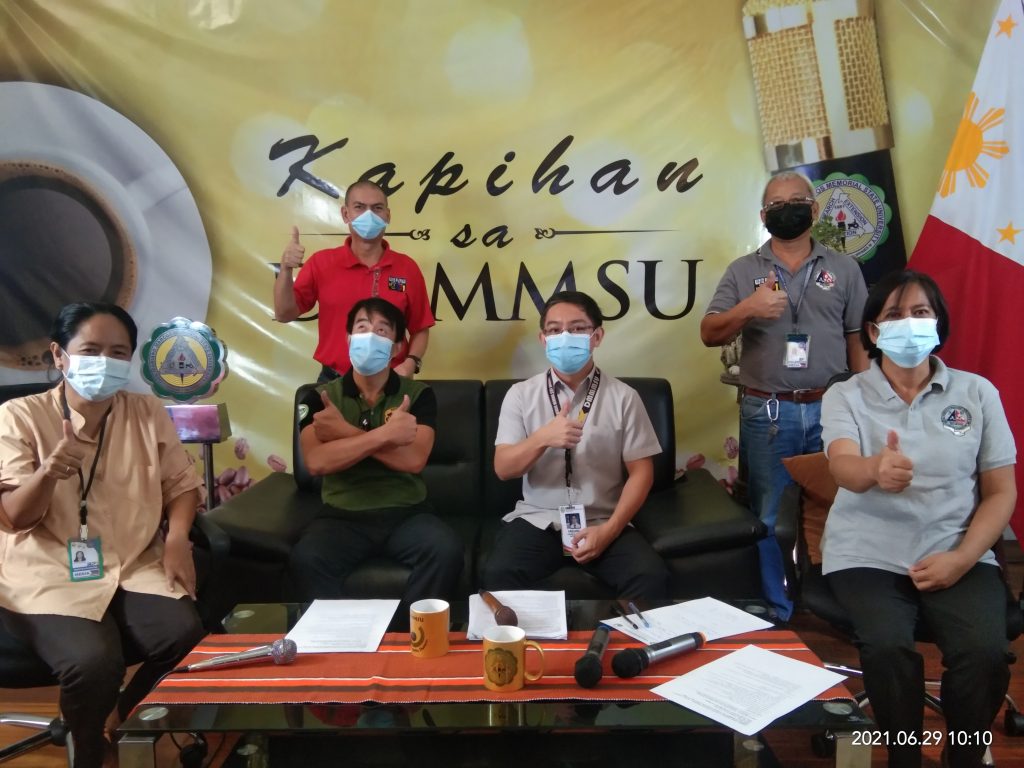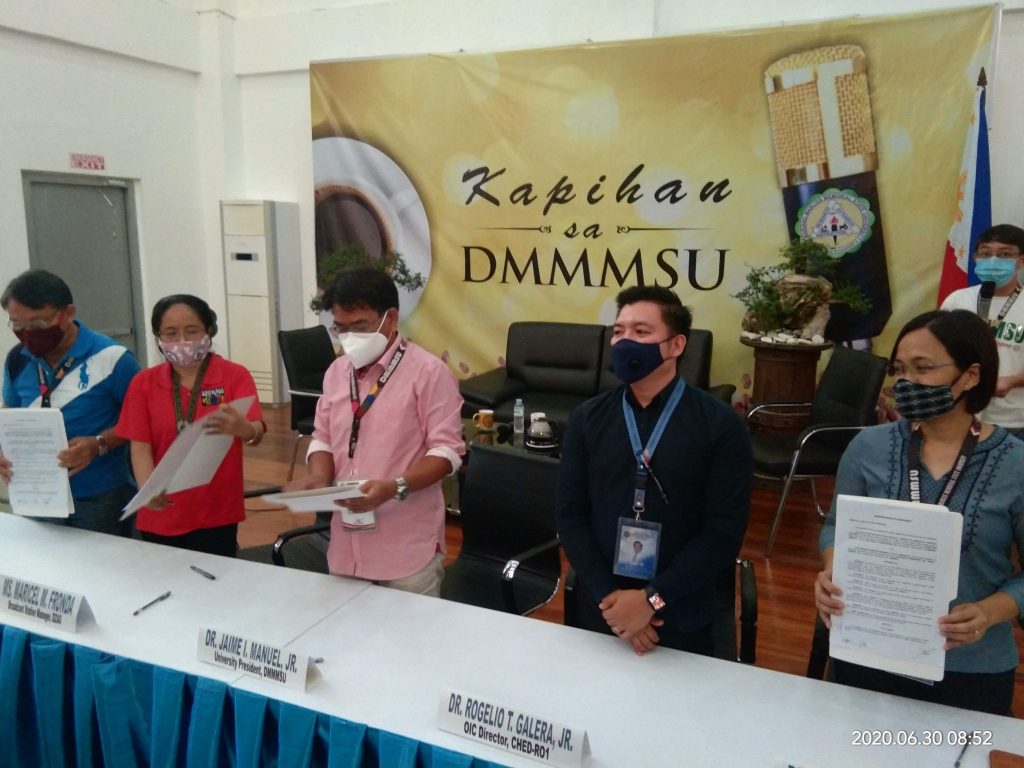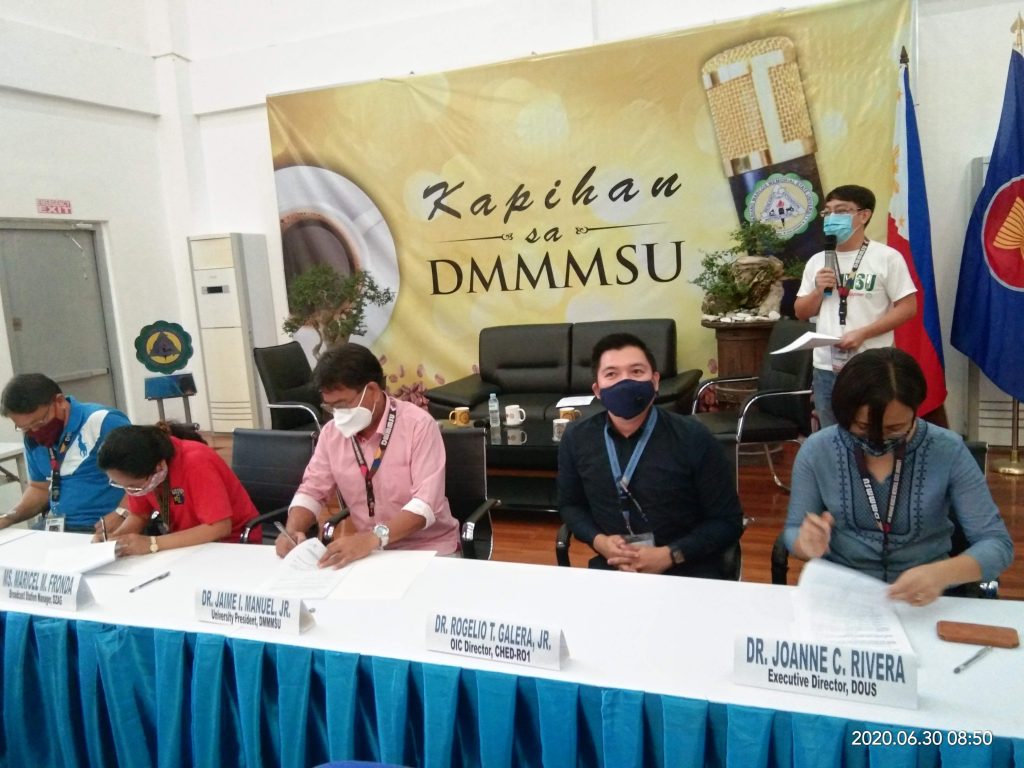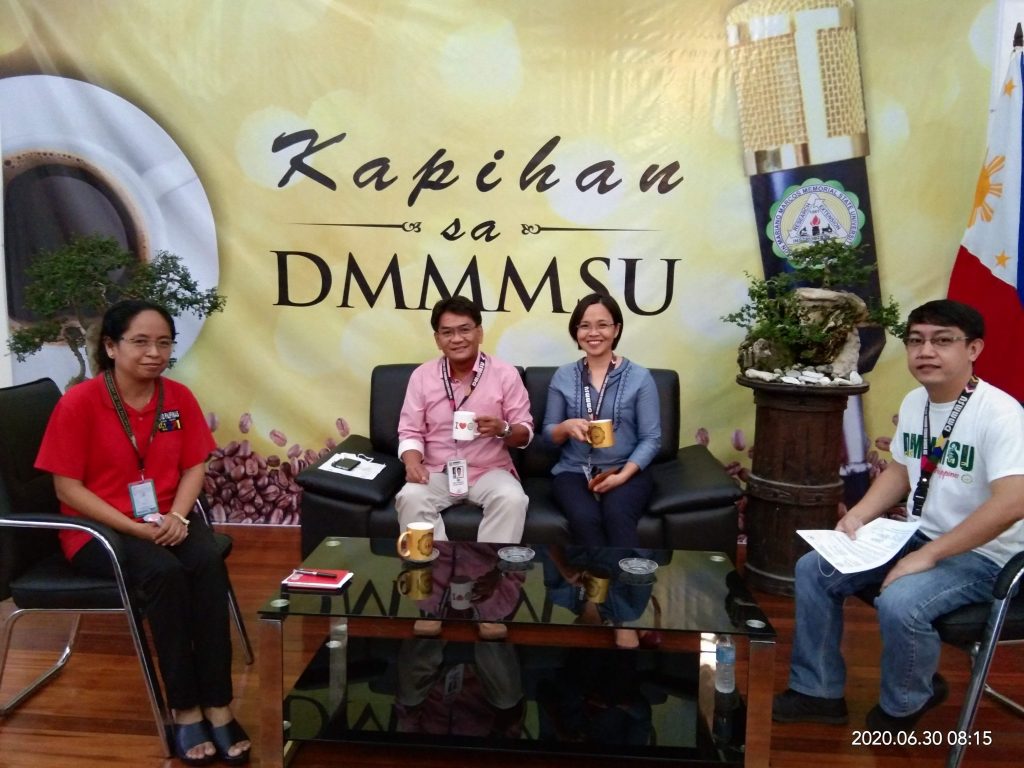The Philippine Drug Enforcement Agency – Regional Office I (PDEA-ROI) was featured as the guest agency on June 29, 2021 in the first installment of Kapihan sa DMMMSU’s three-episode anniversary series. PDEA-ROI’s Public Information Office (PIO) chief, Bismarck L. Bengwayan, discussed the nature and thrusts of PDEA as the main implementer of Republic Act No. 9165 and presented the drug situationer in the Ilocos Region at the time of the COVID-19 pandemic.
Bismarck L. Bingwayan, Chief of PDEA RO1 Public Information Office in the Kapihan sa DMMMSU
Established under the Comprehensive Dangerous Drugs Act of 2002 (RA 9165), PDEA is a 19-year old agency that is “responsible for the efficient and effective law enforcement of all the provisions on any dangerous drug and/or controlled precursor and essential chemical.” Inasmuch as PDEA focuses on illegal drugs and controlled drugs which include those prescribed by physicians to their patients, Bengwayan emphasized that, “from pharmacies to doctors”, there is a need for them to apply for license from PDEA so that they can dispense and prescribe drugs, respectively. This, he said are in addition to the narcotics operations that PDEA conducts.
In contrast to other law enforcement agencies like the Philippine National Police (PNP) which also maintains a drug enforcement group, Bengwayan said that PDEA agents are “trained especially in the implementation of RA 9165”. Since the law is very sensitive in that a single mistake can cause a case to be dismissed in court, Bengwayan further stated that PDEA agents are trained to ensure that proper procedures are observed during buy-bust and other operations.
Another PDEA function that distinguishes the agency from other law enforcement agencies, according to Bengwayan, is the provision of licensing services to those who handle controlled drugs and the chemicals needed to produce them, like drug stores and medical doctors. In particular, Bengwayan mentioned that physicians need to secure an S-2 license from PDEA so they can legally prescribe drugs in their professional practice. [See more details of PDEA’s licenses at https://pdea.gov.ph/compliance-service/14-compliance-service#faqs].
Asked on the effect of the COVID-19 lockdown on PDEA operations, Bengwayan said “ang isang magandang binigay ng pandemic sa atin… nag decrease ang mga gumagamit because there is no access na ng illegal drugs” (one thing that happened during this pandemic is that the number of users decreased because there is no more access to illegal drugs) as the distribution was impeded by the lockdown. The pandemic cut the sources of drugs off from the users, so “bumaba ang operations natin, bumaba ang buy-busts, bumaba ang paggamit…” (the number of buy-busts operations also decreased, the number of users is lessened) he added.
Bengwayan also stressed that PDEA agents are frontline workers in the fight against COVID-19 that is why, even amid the lockdowns, they still had to go out and be in the field. In adherence to protocols, he said, apprehended violators have to be swabbed and if the laboratory test turns out positive, the entire team that made the arrest has to be isolated to ensure safety. The PDEA regional PIO also confirmed that agents really had to sacrifice not being with their families for the time being just so they can spare their loved ones from the threat of infection while performing their jobs at hand.
Recounting the statistics in Region 1 from January to May of 2021, Bengwayan mentioned that there were already 70 PDEA-initiated operations in which 69 individuals were caught and 1 died. In addition to buy-busts and interdictions, marijuana eradication is also a major activity of the agency now.
The Barangay Drug Clearing Program, meanwhile, is “the nation’s approach to address the drug problem” according to Bengwayan. PDEA, together with the Regional Oversight Committee, declares a barangay drug-cleared if, by all parameters set, the local government unit (LGU) has no pusher and no user in its jurisdiction.
With the implementation of the barangay drug clearing program, PDEA has local offices that directly assist the barangays relative to drug enforcement. Bengwayan also said that Punong Barangays have direct access to PDEA in order to coordinate efforts in law enforcement. “For a municipal or a city LGU to be declared drug-cleared, all its barangays must first be drug-cleared,” emphasized Bengwayan.
The media, like DZAG 97.1 where Kapihan sa DMMMSU is aired, plays a key role in law enforcement operations. According to Bengwayan, the members of the media who accompany law enforcers in legitimate operations may also be summoned by the court to serve as witnesses.
While, commonly, buy-busts happen when an agent transacts with a pusher for an exchange of cash and illegal drugs and the latter is intended to be arrested by virtue of Section 5 of RA 9165, Bengwayan also added that doctors who prescribe, administer or inject drugs to a patient sans a license from PDEA is also liable under the RA 9165.
As enumerated in Section 84 of RA 9165, PDEA can, among other duties and powers, issue a subpoena and a subpoena duces tecum relative to the conduct of investigation involving RA 9165 violations, arrest and apprehend violators, prepare for prosecution or cause the filing of appropriate criminal and civil cases against violators of all laws on dangerous drugs, conduct eradication programs to destroy wild or illegally grown plants from which narcotics can be extracted, and require all government and private hospitals, clinics, doctors, dentists and other practitioners are enjoined to report any illegal acts pertaining to illegal drugs.
In the context of rehabilitation, Bengwayan explained that LGU’s are given the leeway to implement their own community-based rehabilitation programs (CBRP) as part of the requirement for drug clearing. He clarified that PDEA does not operate its own rehabilitation center. PDEA only coordinates with existing centers. Balay Silangan, he further stated, is initiated by PDEA but the facility is also under the management of LGU’s.
Bengwayan concluded by encouraging the public to support PDEA in its fight against drugs and invited interested individuals to join their ranks. PDEA Region 1 can be reached through their Facebook Page at https://www.facebook.com/pdeanorthern.luzon while other details concerning the agency may be found in their website at https://pdea.gov.ph/.
The PDEA episode of Kapihan sa DMMMSU was anchored by Ms. Maricel Fronda, the DZAG 97.1 Station Manager, and Mr. Farland Valera of the OUS. This episode, which can be viewed at https://www.facebook.com/DMMMSUopenuniversity/videos/391104035664008, is part of the e-Project Tanglaw, the OUS extension program led by Prof. Claudia Denise Barbadillo that caters to beneficiaries under the care of the DOJ – Parole and Probation Administration Region I. (OUS)
Below are some photos taken during the launching of Kapihan sa DMMMSU in 2020.
